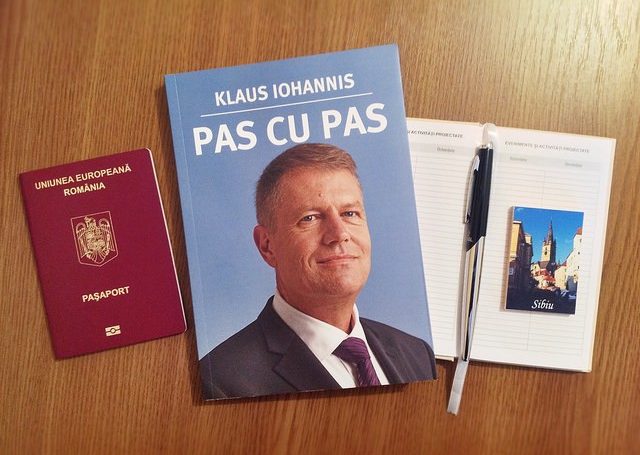
At the end of Fall 2014, close to the 25th anniversary of the Romanian Revolt of 1989, a political shock coincided this important event: the surprising results of presidential elections.
Despite all the predictions and preparations, the winner was a significant “under dog”, the former German Lutheran mayor of Sibiu, a beautiful city in Transylvania – the “cultural capital of Europe” some years ago. Significant, indeed, because this is the first time in Romanian history that an elected leader of the country belongs to a non-Christian Orthodox minority. There were in Romanian history some German kings at the start of its modern era, but they were not elected, they were invited to reign by the political class. Even then as well as afterwards, the Church played an important role, not always a positive one, in the social-political life of the country.
The new president, Klaus Johannis, represents a diminished German minority and also a new kind of politician – an excellent administrator (reelected several times as mayor) rather than the usual professional politician, fit for a quite burlesque public scene, and to the often-shrewd manipulations. He has been received with great acclaim and hope, an already good sign about the changed mood of the electorate. He seems honest ad pragmatic, energetic and prudent, although it’s still difficult to predict how much he might be able to transform the not admirable tradition of the political life of the country and the mafia type of the political establishment.
The victory of Klaus Johannis was also – and this is another surprise – the victory of the Romanian Diaspora. After it became obvious, due to many protests from Paris, Berlin, Munich, London etc. that the government tried to block the vote of Romanians living and working in western Europe, where Johannis was the great favorite, the internal reaction was prompt and powerful, drastically enhancing his chances. It also gave a supplementary cosmopolite meaning to the new start of the country.
Perhaps it’s worth mentioning another event – although not political – related to this promising situation: the Gala of Best Romanian Students Abroad. Being invited to be a member of the jury that selected the best of them, I should say that I was profoundly impressed by their great academic achievements at major universities in Paris and New York, in London and Berlin as well as in Japan and China. Brilliant and very gifted young people, dedicated to study and research, with admirable results. I saw in them the proof of the powerful potential of the country herself and the premise of her bright future, as part of an advanced international community. Also a necessary, even if delayed, separation from a rather dark and oppressive past, with still too many reminiscences in the present.
I remembered at that occasion that the official press used to call me in the last period of the Ceausescu’s nationalist communism “an extra-territorial – conspiring with foreigners against the luminous future of our great homeland.” At that time, I didn’t plan at all to leave the country and couldn’t even imagine that the prediction of these Party prophets will become at a certain point a not too bad reality in my exile.
Thinking about changes in my own biography I was also reminded about another exile, the famous Romanian philosopher Emil Cioran who published in 1938 a scandalous book entitled “The changing face of Romania” where he stated that the solution to such a retarded, bleak and marginal country is a kind of disastrous moral earthquake, that will transform it into a fierce, nationalistic and mystical place, part of the “new order” of a totalitarian vision of a militant, fierce and aggressive future. This brutal picture was in harmony with his nihilistic and extreme right-wing political commitment of the time, which he deplored after the war in his Parisian refuge.
The dangers of that time didn’t totally disappear in our postmodern, global environment, unsettled by fanaticism of religious or nationalistic militants, but the new face we hope to see for Romania, is a very different one from the one envisaged by Cioran in the past. It is part of the unifying project of a modern society, governed by freedom and human rights for all, in a democratic, prosperous and progressive contemporaneity.
What we saw or wished to see in the presidential elections in Romania and at the stimulating Gala of its intellectual young stars is only a tiny part of such great hope.
Further Reading on E-International Relations
- Opinion – Moldova and Romania’s Unification is Not on the Horizon
- British Policy Towards Romania, 1936–41
- Great Power Meddling in Central Europe: 1914–45
- Returning to Realism: The Other Face of the Ukraine Crisis
- Nigeria’s Soft Power in the Face of COVID-19
- Opinion – A New Atlantic Charter for a New Age of Competition